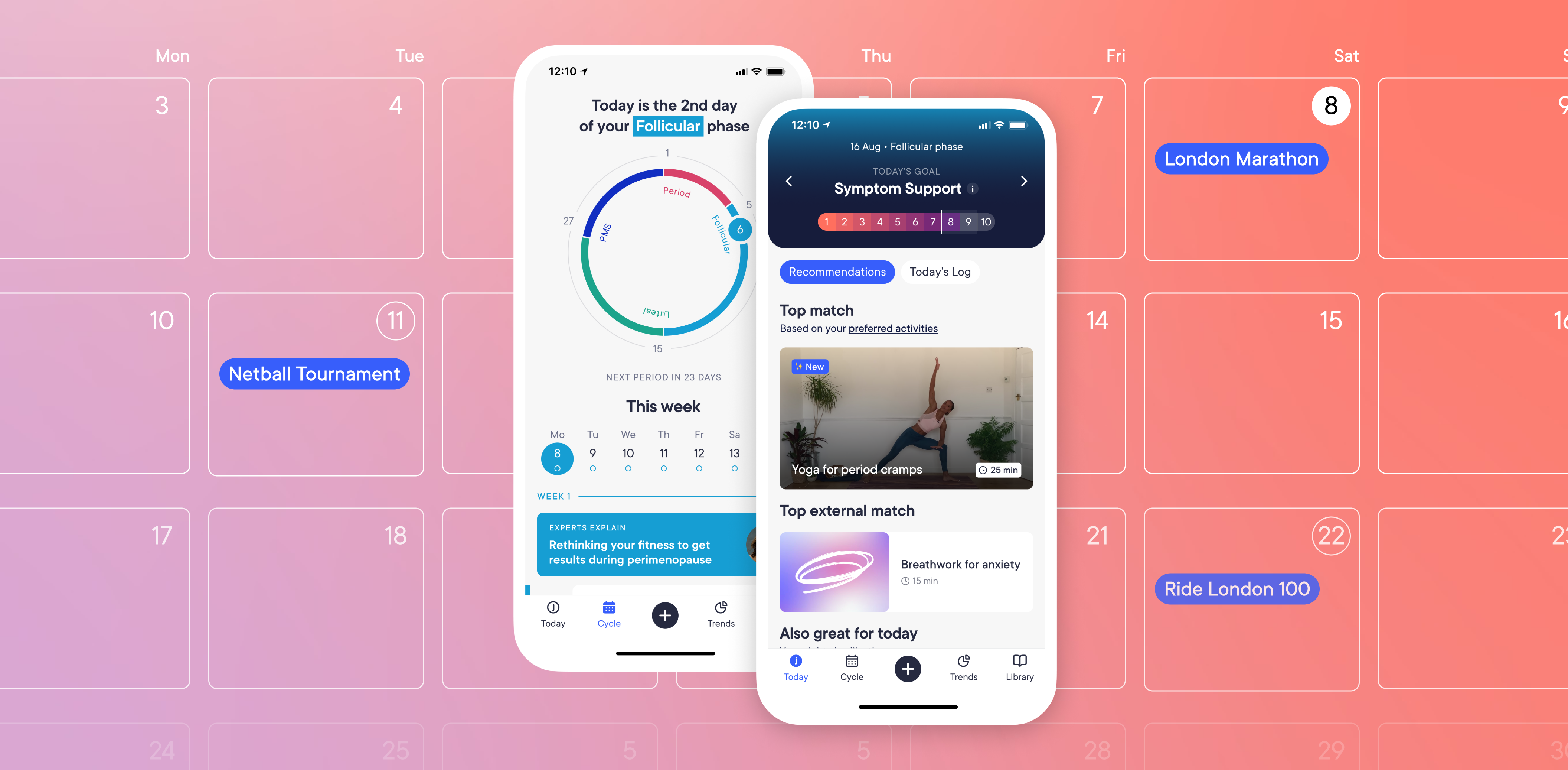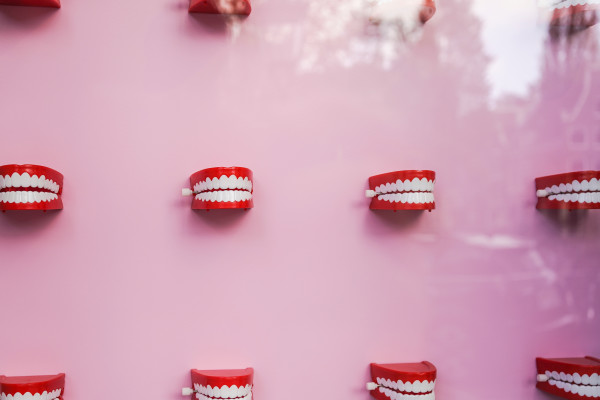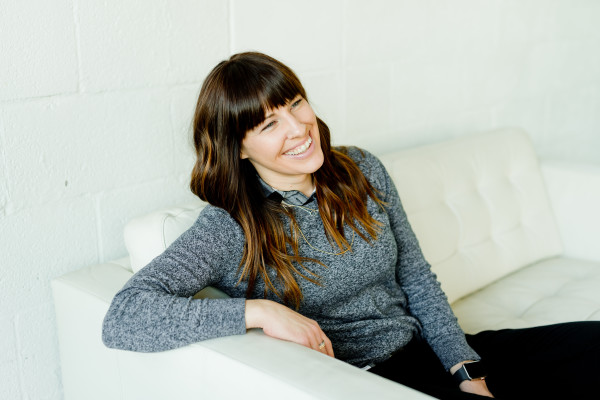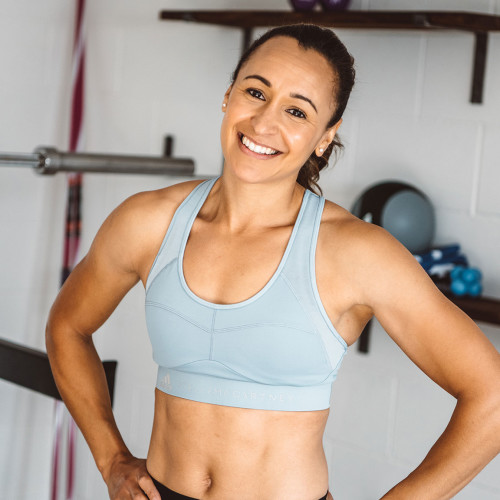How to hack your hormones for important sporting events
6 months ago
Cycle syncing6 months ago
Cycle syncing
Worried that you’ll be on your period for your next event or tournament? Need to up the ante but worried about cycle symptoms? Jennis sports physiologist, Dr Emma Ross, reveals how to hack your hormones and symptoms to perform at your best…
We all know that feeling: you’ve been training for months, your marathon, 10k, tennis tournament or athletics event is coming up – and you know you’re going to be on your period. Dammit!
The reality is that you can’t plan your next event around your menstrual cycle. But, according to Jennis physiologist, Dr Emma Ross, there are strategies you can use to set yourself up for success.
“There are four distinct times during your cycle when your hormones are changing,” says Dr Emma, who worked with women athletes in the run-up to the Rio and Tokyo Olympics. “By understanding your cycle and what your hormones are doing each month, you can lean into the good bits and learn how to reduce the bad.”
“At the beginning of your cycle, your key hormones oestrogen and progesterone are very low, so they’re not really exerting much influence on us,” says Dr Emma.
Instead, it’s a hormone-like chemical, called prostaglandins, that could be responsible for the painful abdominal cramps, which around 80% of women report getting at this time.
Your low oestrogen levels might also cause things like headaches and tiredness - and, because you’re losing blood (and therefore more water than usual), this can cause dehydration.
If your periods are particularly heavy, you could also be more susceptible to iron deficiency , with the excess blood loss meaning that your iron levels can’t be replaced fast enough.
Try a 10-minute yoga session before your event to help stave off those cramps
“My number one thing is to pay attention to hydration,” says Dr Emma. "Losing blood can make you dehydrated and we know that dehydration can lead to cramps.”
As a testament to this, last year, super sprinter Dina Asher-Smith revealed that her period caused cramps that prevented her from getting the 100m gold – ”It was just ‘girl stuff’,” Dina told The Guardian . “It’s a shame because I’m in really good shape and I was really looking to come and run fast.”
Bloating during your period is also common. So, get a few days ahead and try to avoid sugar and caffeine, as we know they can exacerbate both pain and bloat.
Another helpful hack is to choose foods or supplements with magnesium, zinc and Omega-3 across your whole cycle. This can help to reduce symptoms during your period phase and will act as an insurance policy against negative symptoms that could affect your performance.
“Finally, get to know the best strategies for you,” says Dr Emma. “We’re all different and we all need an individualised approach to our training and event preparation, so being able to track your trends is really helpful, because then you can get ahead and do something about them.”
If, for example, abdominal cramps really mess with your focus, try a 10-minute yoga session before your event to help stave off those cramps. This works by sending heat and blood flow to the area and can reduce cramps and pain as a result.
“Your oestrogen levels are rising in the follicular phase, and with it comes lots of benefits,” says Dr Emma. “Research suggests that we are more motivated and confident when oestrogen is high, we recover better, we experience reduced muscle soreness and we also show a quicker return back to muscle function, which is why you might see bigger gains with your strength training at this time.”
There is a catch, though. When you’re feeling this good, you might be tempted to push yourself harder, take more risks, go for more intense tackles or overstretch yourself and your ability.
“There’s an emerging body of research to suggest that you might be more susceptible to injury during this point,” says Dr Emma, with one recent study finding that muscle and tendon injuries happen almost twice as often in the late follicular phase compared to the early follicular or luteal phase.
Although the exact reason for this isn’t clear and the jury’s still out, this might be because oestrogen affects the collagen in our joints, making our joints become more lax and less stable. Or, it might be because you’re more willing to take the risks we mentioned earlier.
Take your time when warming up and cooling down so that you reduce your injury risk
Because you’re riding that awesome oestrogen high, you should probably be doing a small fist pump to celebrate the fact that your event has fallen in this phase. To stave off potential injury though, try adjusting your pre-workout or pre-event routine.
“I’d advise you to take your time when warming up and cooling down so that you reduce injury risk. Don’t rush it or skimp on it just because you’re keen to get out to the action, and use the time to channel your follicular power and mentally prepare for your event."
“During your Luteal phase , which is phase 3 of your cycle and just after ovulation, there tends to be both good and bad bits when it comes to the symptoms a lot of women experience,” says Dr Emma. “Progesterone hits its peak and can help to calm your nervous system and improve your sleep. Because of this, some women feel more chilled and relaxed, which is great if you have a tournament, race or fixture you might have otherwise felt anxious about.”
“On the not-so-good side, some people might feel more clumsy or uncoordinated than usual because progesterone has been linked to impaired cognition . Because of this, perfecting your tennis serve, getting a pin-point pass or shot in netball or changing your golf technique might be more difficult than usual,” says Emma.
Progesterone can also affect your gut motility (how well food moves through your digestive system), which can cause bloating or constipation. “If you’re a boxer or martial artist and you’re monitoring your body weight as part of your training, it’s worth remembering that it might increase by 1-2kg around this time.”
Finally, this high progesterone phase can affect your body’s ability to stabilise your blood sugar levels. So, you might experience more crashes of energy.
Try a priming routine – this might include aerobic exercises that increase blood flow to the brain, or exercises that fire up your muscular system like jump-rope drills
Sure, progesterone is calming but it can also have a dampening affect on your brain, impairing cognition and potentially hand-eye coordination. To get around this for your event, try working out a priming routine to help sharpen your focus and get you reacting as quickly as possible.
“Priming your neuromuscular system essentially helps you to fire up your central nervous system and muscles to perform as best as you can,” says Dr Emma.
The idea is to use a physical stimulus to prime or charge the muscles for competitive movement, and research shows that it can significantly improve performance, especially across sports like weightlifting and rugby.
“Depending on your sport, your priming routine might include simple aerobic exercises that increase blood flow to the brain, or exercises that fire up your muscular system like jump-rope drills, dribbling or throwing and catching a ball against a wall.”
The progesterone increase can make you feel sluggish, so remember to stay hydrated and forward-plan your meals and snacks. “Try eating more regularly to help keep your blood sugar stable and get smart with slow-release foods to stave off cravings.”
“Women have reported up to 150 different symptoms during this time – all caused by our main menstrual-cycle hormones, oestrogen and progesterone, dropping from their elevated levels back to the baseline,” says Dr Emma.
From sore boobs to feeling more tired and anxious, this can be a tough time if you’re wanting to up the ante or it coincides with a big event.
During this time, you’re more likely to get dips in your blood sugar. “You might have cravings for sugary or salty foods and generally feel a bit grotty,” says Dr Emma. According to the Mayo Clinic , bloating can also kick in around one to two days before your period.
Tell your coach / captain / team mates so they can be mindful of how they communicate with you
The good news is that it’s possible to lessen some of these negative symptoms, especially if you know what’s coming.
“20-40% of active women find that breast pain interferes with their ability to train and perform. So, if you get sore boobs, make sure you’ve got a few properly fitted sports bras – this can ease pain by reducing movement of breast tissue and can help your back health too. Then, wear your highest-level support bra on the day of the event,” says Dr Emma.
A 2019 review found that foods rich in vitamin E like flaxseed, nuts and avocado, can also help to reduce the boob soreness – decreasing both the severity and duration.
In terms of your mood, it can be helpful to acknowledge that your hormones are playing a part here. Think about what makes you feel good before an event. “That might be some breathwork, positive self-talk or putting on your headphones and listening to some feel-good music 10 minutes before you need to perform,” suggests Dr Emma.
Communication can also be really helpful during this time. If, for example, you know that anxiety gets to you during your pre-menstrual phase, you might want to tell your coach / captain / partners / team mates – “Not so they can wrap you up in cotton wool,” says Dr Emma, “but just so they can be mindful of how they communicate with you.”
“When it comes to foodie things that you can do, my advice is to think about foods that help to manage your energy levels and mood. A recent review found that foods high in B-vitamins like wholegrains, eggs and fish can help you fight the slump.”
We like to call it, cycle resilience. It means that wherever you are in your cycle, you'll know that you done everything you can to max your performance
Understanding how you experience your menstrual cycle during each key phase means that you can plan ahead and know which strategies will work to prepare you for your event.
“We like to call it, cycle resilience,” says Dr Emma. “It means that wherever you are in your cycle, you’ll know that you’ve done everything you can to max your performance. And you can walk out there feeling as confident and positive as possible.”
 Cycle syncing
Cycle syncing Perimenopause
Perimenopause Perimenopause
Perimenopause Perimenopause
PerimenopauseSign up to learn everything you need to know about CycleMapping, plus how you can live better and feel better through optimising your fitness to you.
This website uses cookies to ensure you get the best experience on our website. Learn more

Sign up for the very latest news on women's fitness, health and hormones, plus be the first to receive exclusive offers and extras